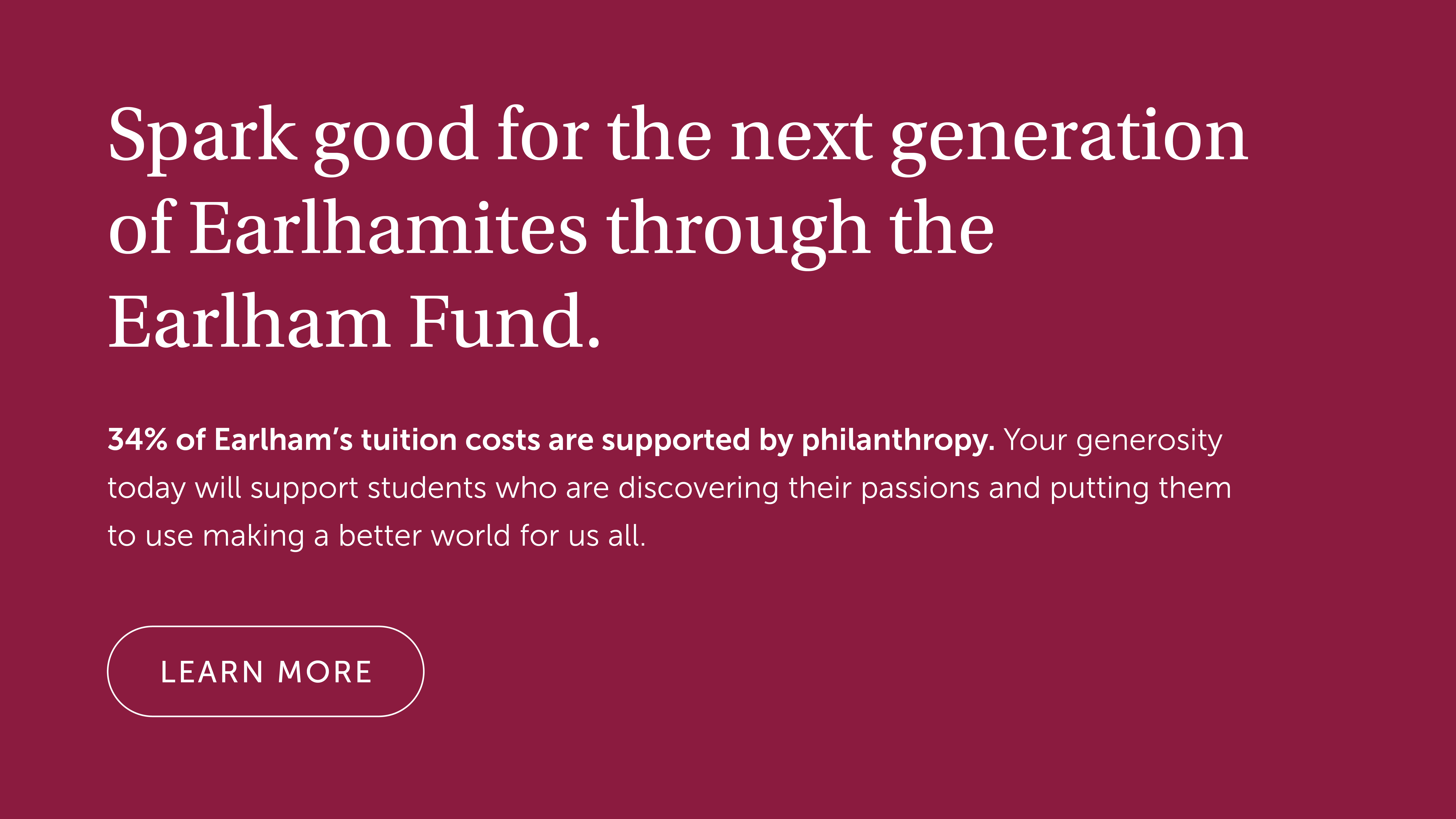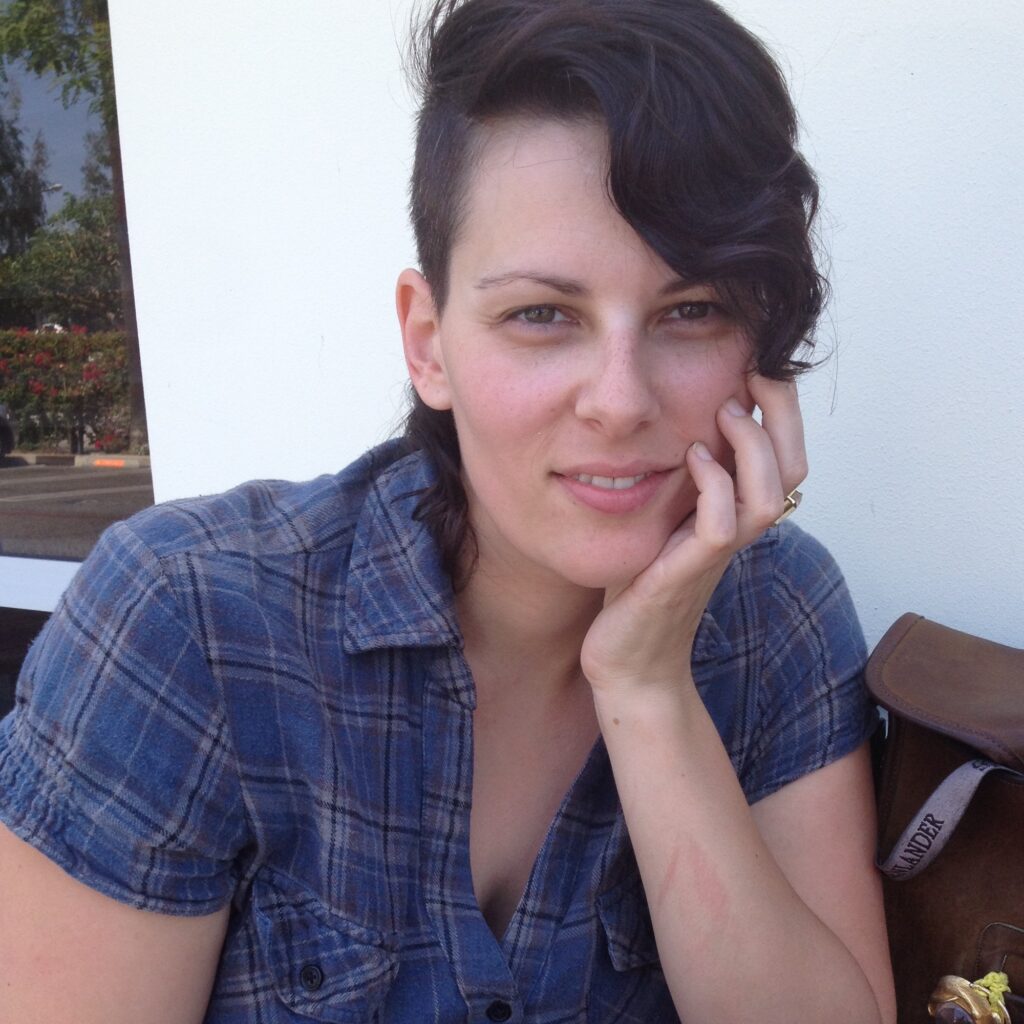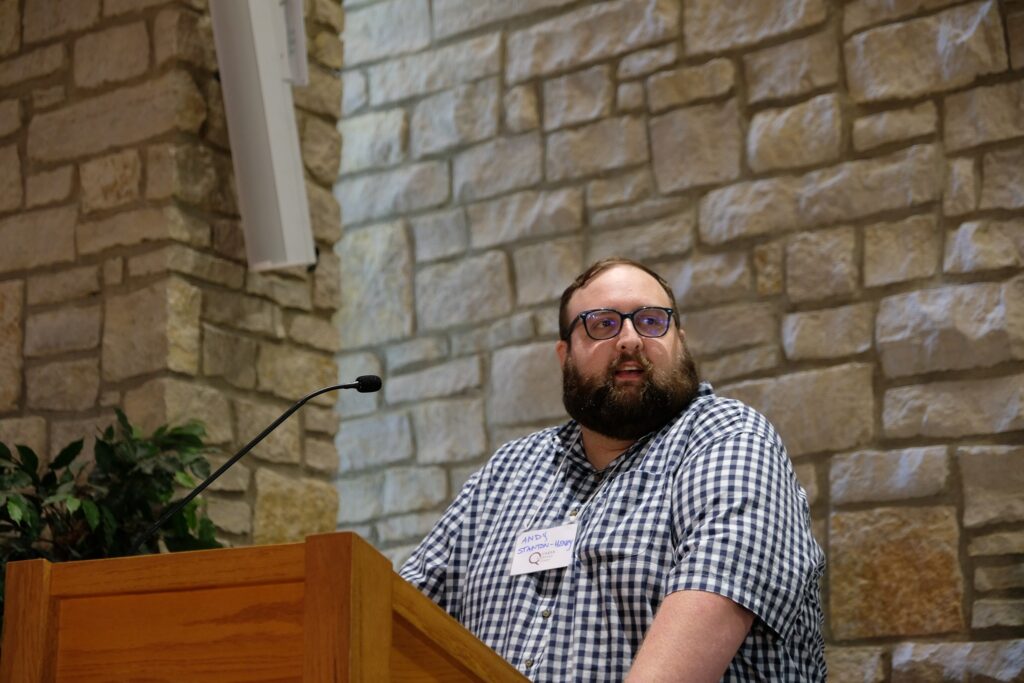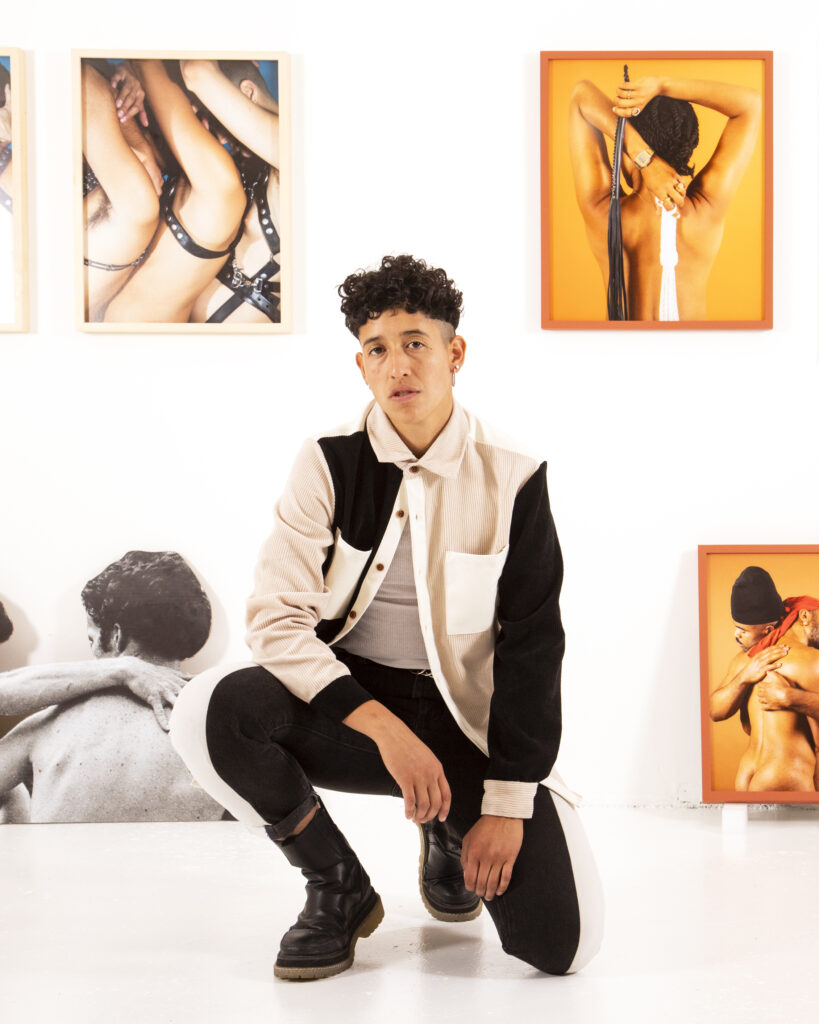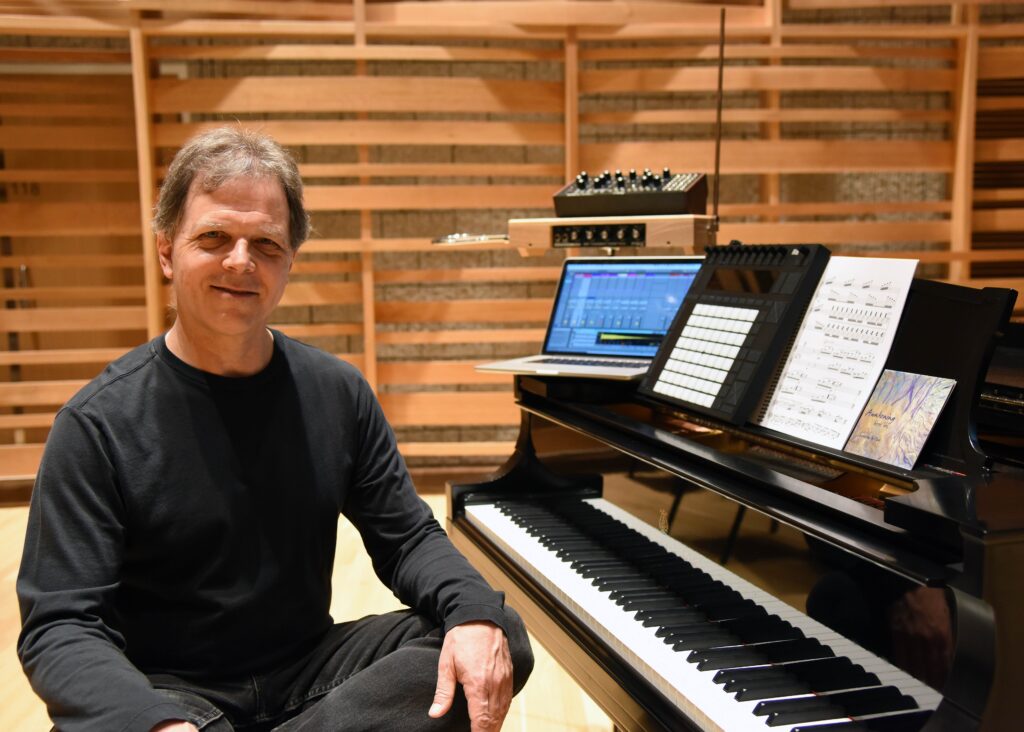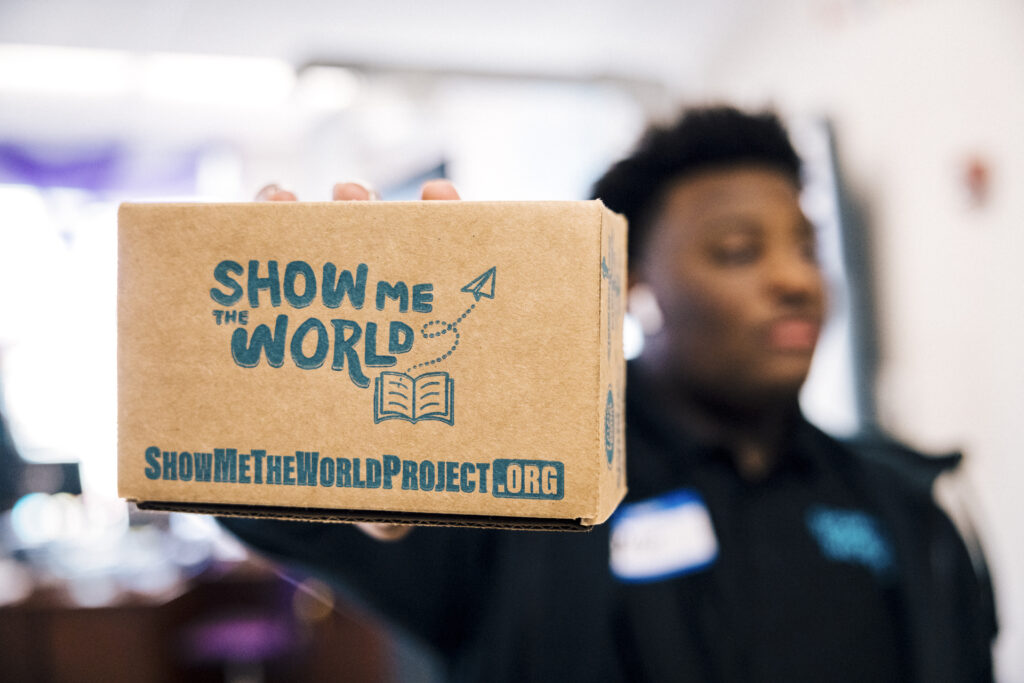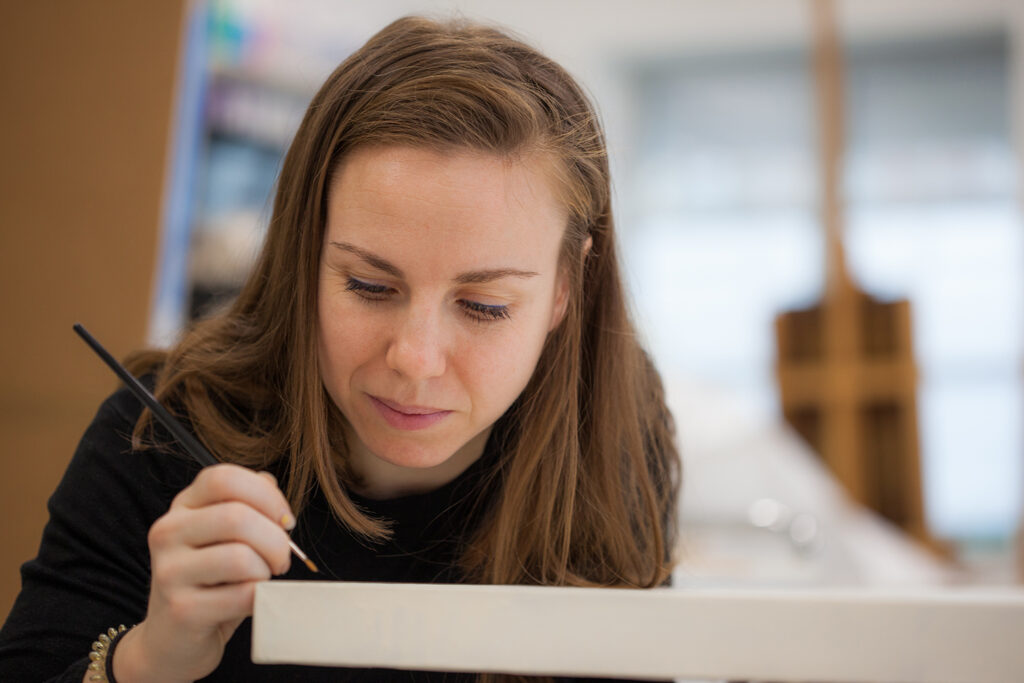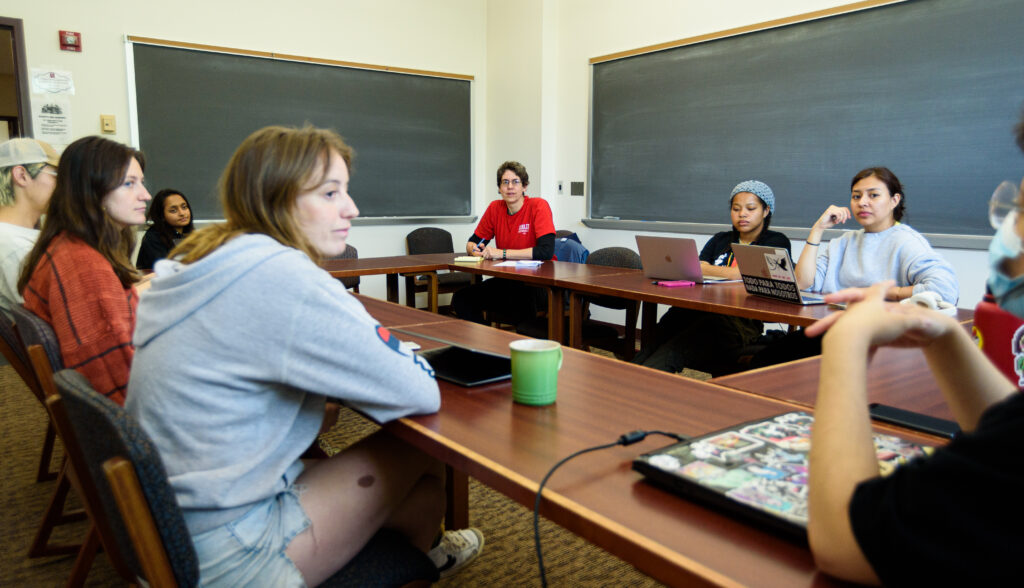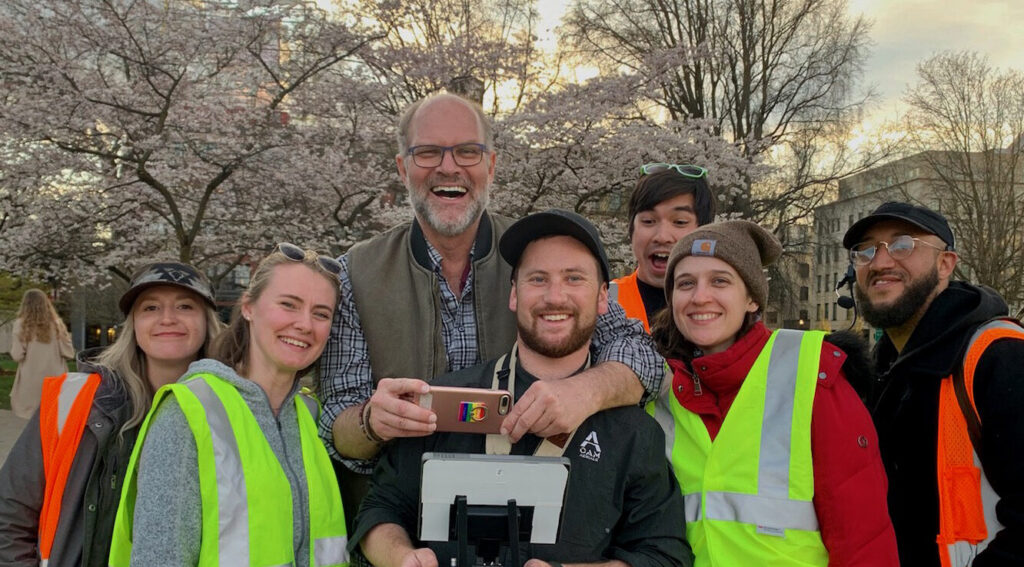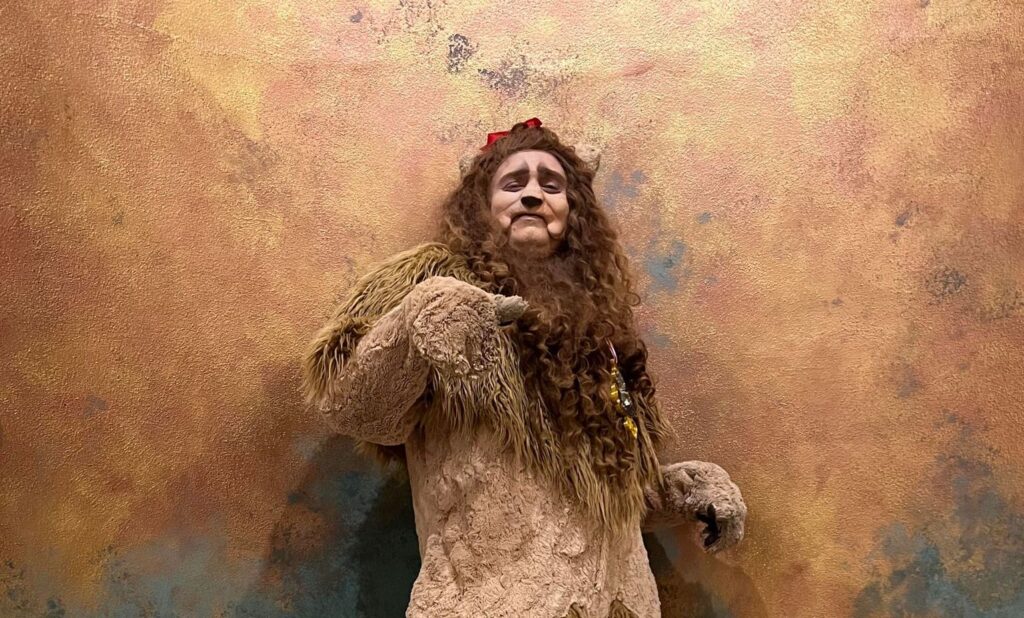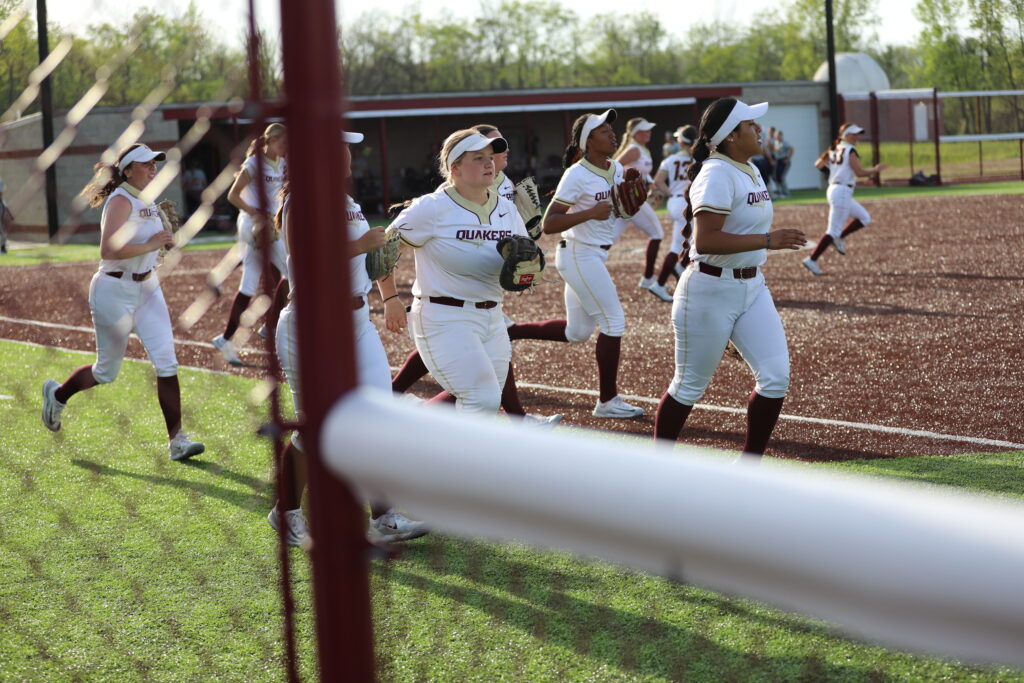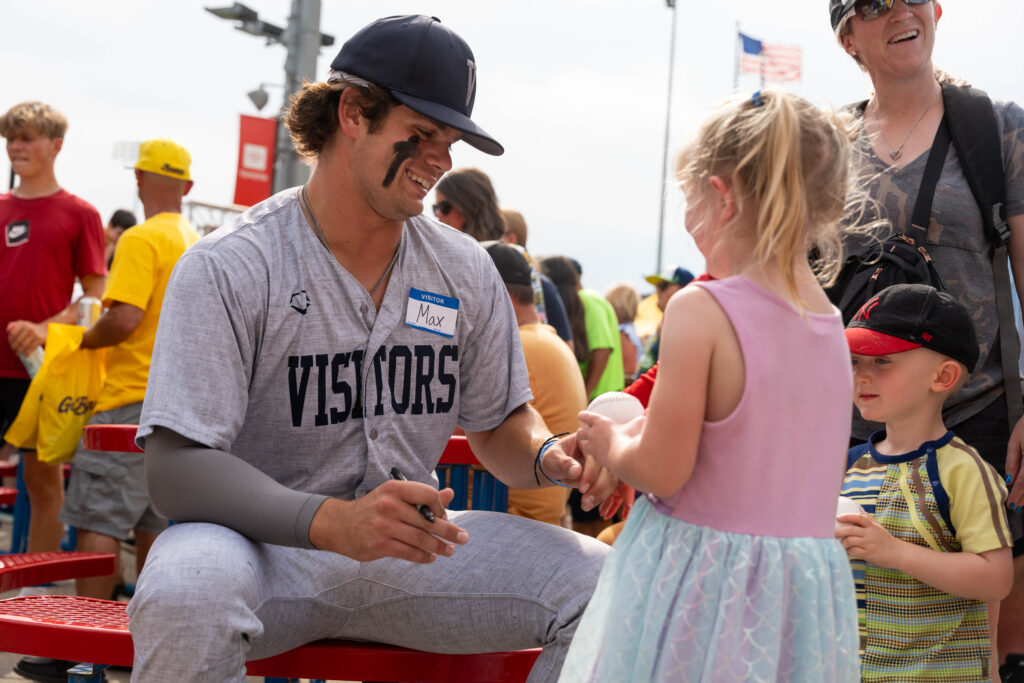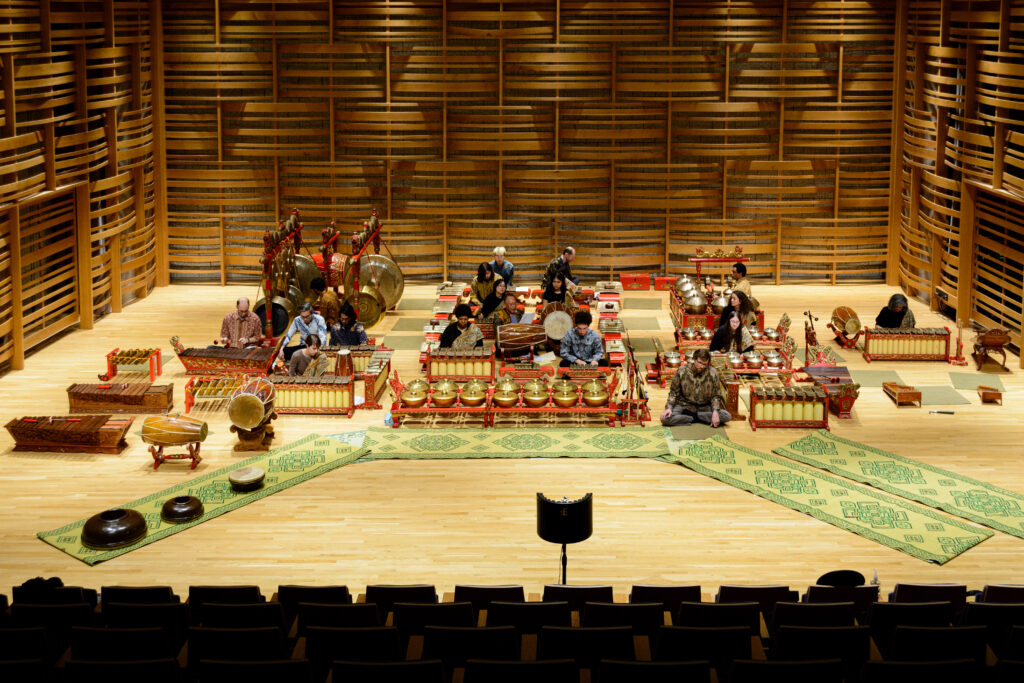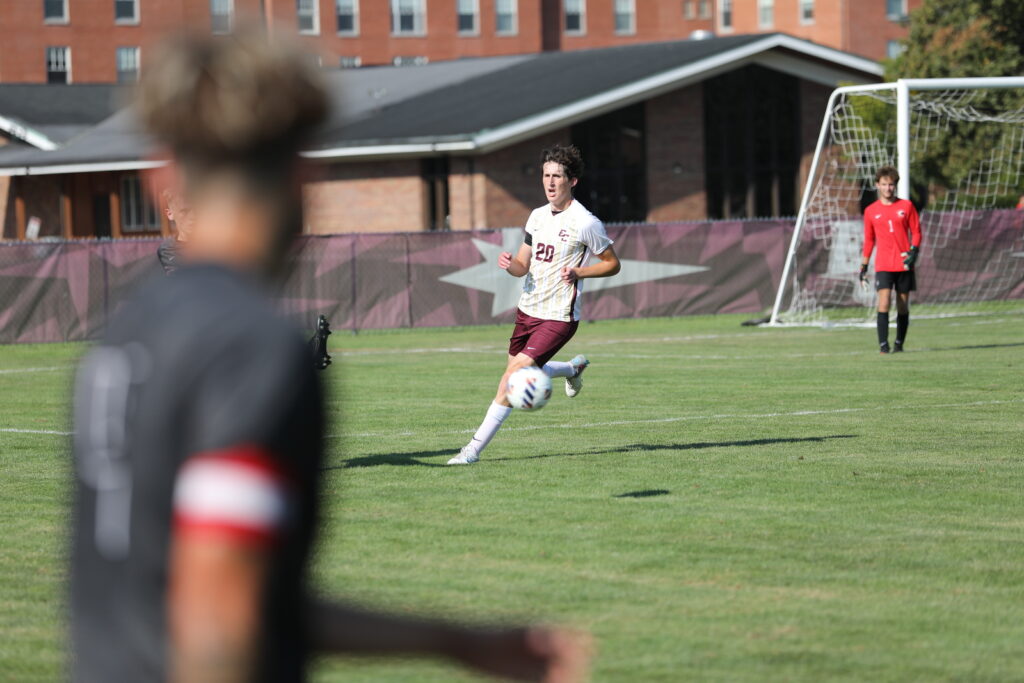Earlham classrooms are some of the best in the nation. What goes into starting them off right?
When Elliot Ratzman begins his first class of the term, his intensity lets the students know that Bible in Politics, History and Literature has begun. He prompts them to look up from their computers. After a few opening words he recites, in Hebrew first, and again in English, “‘In the beginning God created the heavens and the earth.’ We too are starting. We are starting the study of the Bible.”
He breezes through a set of new terms and ideas: multiple traditions of interpretation, Friedrich Niestzche’s caustic thoughts on the Bible, the Hebrew alphabet, original sin, revelation, 4th century theologian Augustine of Hippo. Finally, Ratzman lingers on the question of just what’s going on with that wily snake in the Garden of Eden.
Then there’s a pause and smile.
“So, with that, let me pass out the syllabus so you can see what you’re getting into.”
Ratzman, chair of Jewish Studies, has a philosophy about first days in the classroom that is shared by many at Earlham. “What the first day does—and what it has to do—is get students excited about what we’re doing together. That first class paints a picture of what they’re going to get in the course.”
The attention given to first days is consistent with the priority that classroom teaching has in general for Earlham. The approach hasn’t gone unnoticed. Not by its alumni, certainly, and it has also been recognized externally. Earlham, for example, appears in The Princeton Review’s Best 387 Colleges “Great Classroom Experiences” list, among others. US News includes Earlham on its list for Best Undergraduate Teaching.
So, how do you get started when the goal is classroom greatness? If there’s a thread that weaves its way through each Earlham course, what’s the first stitch?
More than icebreakers
That first day sets the tone for the entire course, according to Belén Villarreal, associate professor of Spanish and Hispanic studies. It’s imperative for her students not just to understand the syllabus, but to get to know one another and understand that all of their voices matter, regardless of their own beliefs about their language learning abilities.
“Learning a language is not just a privilege reserved for a few lucky students who got As in high school Spanish.” said Villarreal. “It’s an ability that all can cultivate as they build a supportive learning community together. “
For Antonio McAfee, visiting professor of art, the idea of students learning from each other couldn’t be more important. Peer critiques, or crits, are central to his courses on photography. One of the icebreaker exercises McAfee conducts with this class is to have everyone describe a trait that they admire in another person.
“Often, it’s something like humor, trust or competence, but what they bring up gives me the chance to talk about the kind of communication that we need in our class every day. Because crits are so important to class, we all need to feel comfortable communicating, receiving and giving feedback and establishing mutual respect as we communicate with each other being honest, but not being hurtful, always staying constructive.”
Besides growing as artists, McAfee asks his students to improve their ability to articulate themselves and a point of view.
“They are not learning just from me. It’s not just a top-down situation,” said McAfee. “When they contribute, they take ownership. The more we can come together and be constructive, the better the course is for everyone. It’s energizing.”
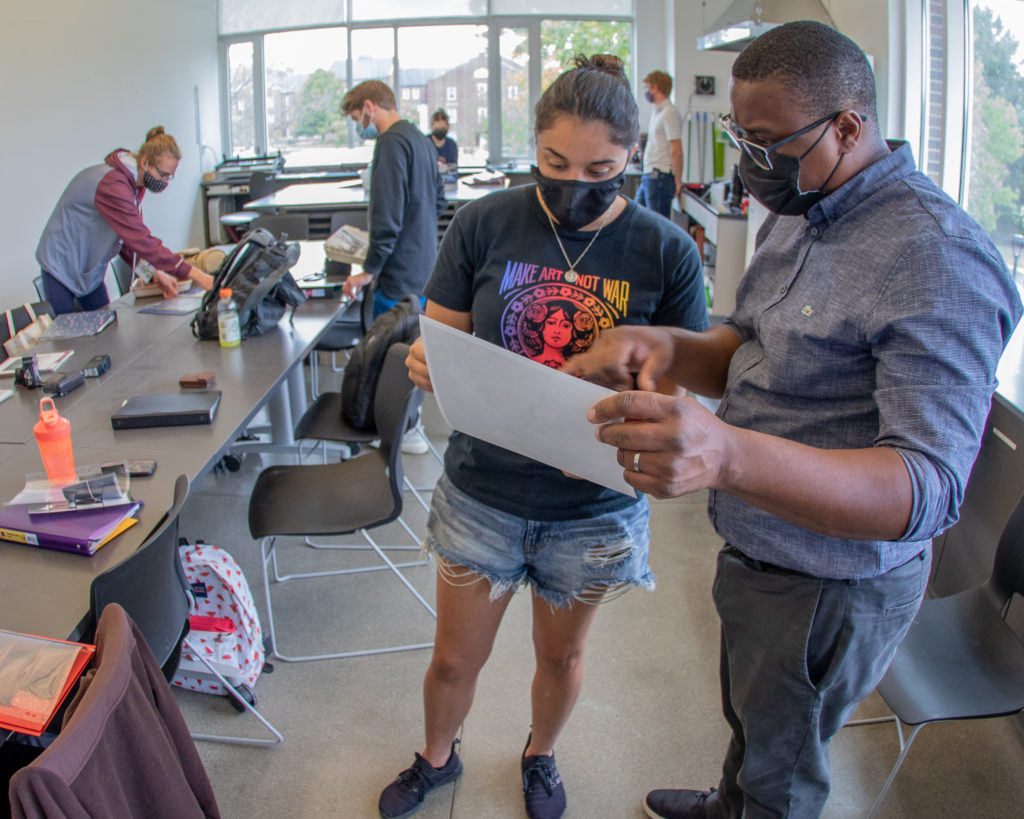
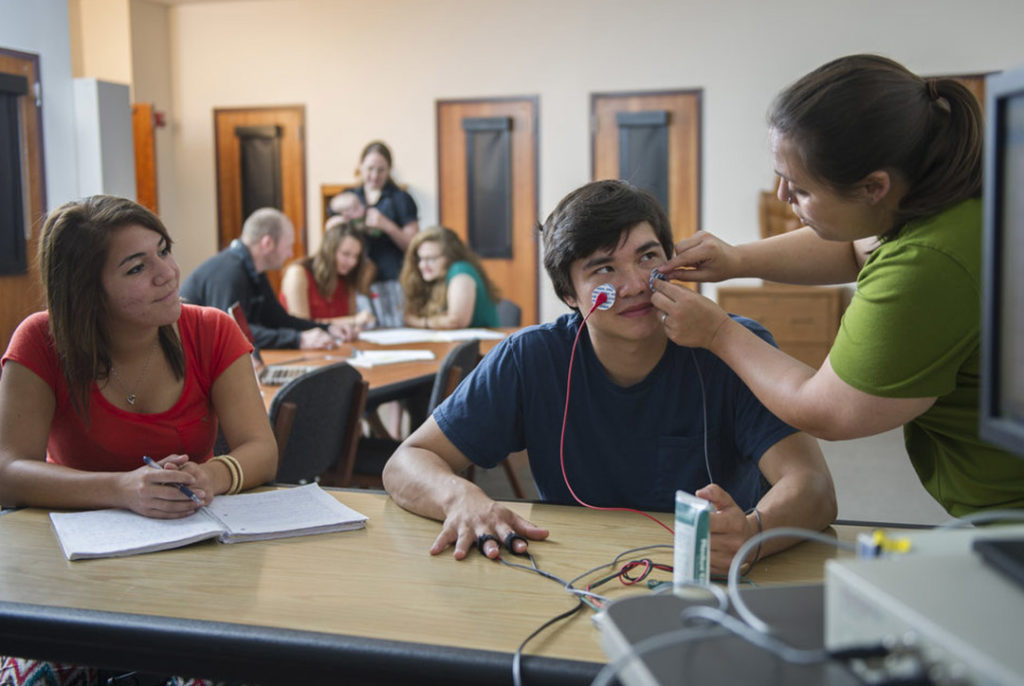
It’s tricky
Sometimes it’s the subject matter itself that draws special attention from professors on the first day. Maggie Thomas has been teaching in the Psychology Department since 2011. In addition to being an associate professor of experimental social psychology, she is the interim dean of the College and the faculty director of EPIC programs.
“It’s important that I make it clear from the start that they will be uncomfortable at some point,” said Thomas, “and that they are in a classroom with people who are going to have very, very different perspectives.”
In her Human Sexuality course, for example, “It’s inevitable that somebody will be uncomfortable because conversations about sexuality are so intricately related to almost every aspect of our lives. Understandings of human sexuality are often built on religious identification. And in the United States, things like financial benefits are related to marriage and child rearing.”
To navigate these choppy waters, Thomas makes clear that the fundamental guiding principle for her class is respect. “Respect doesn’t necessarily mean agreeing with everyone. But respect means treating them with human dignity. That means treating their ideas with dignity. That means, you know, kind of coming at things from a place of openness and curiosity. “And that doesn’t necessarily mean you change your mind, because sometimes you won’t and that’s okay.””
Knowing that issues of human sexuality, even for college students, can be difficult to talk about, Thomas helps everyone over the first hurdle.
“I make them uncomfortable on the first day on purpose,” she said. A list of words relating to sexual response and concepts, body parts and functions is placed on the classroom’s screen. Which ones? Exactly the kind that a person may be bashful to speak out loud.
She explains, “We’re going to use language in this class, real language, not euphemisms for parts of the body. You need to be able to say them. When you’re introducing yourself, pick one of these and say it out loud. We’re ripping the Band-Aid off right now because we are adults and adults should be able to have conversations using real terminology.
“It’s about expectation setting on that first day of class. The message is, ‘We treat each other with respect. We’re going to talk about tricky things. You’re going to be uncomfortable. Here we go.’”
“It’s about expectation setting on that first day of class. The message is, ‘We treat each other with respect. We’re going to talk about tricky things. You’re going to be uncomfortable. Here we go.’”
Maggie Thomas
No passengers allowed
Max Paule, associate professor of ancient and classical studies, hasn’t always thought highly of day one in the classroom.
“When I first started teaching, I really viewed day one as kind of a wash. I thought, well, I’m just going to introduce the syllabus. The class was basically me riffing on the syllabus. That was such a missed opportunity.”
Now he aims to build community and ownership as well. Every class starts with questions about what’s going on in their lives and on campus.
“I try to get everybody talking. Is it someone’s birthday? Do they have a game coming up? A performance? What’s happening on campus? It helps build camaraderie. It helps the class cohort come together as an actual unit of people as opposed to just happening to be in a room together.”
It may be a small step to take, but it’s one step closer to the most important lesson Paule teaches on the first day: To make the most of the class, they cannot simply be passengers.
“So, on the first day, I do make clear the road map of where we are going in the course. That’s the syllabus. I want students to know exactly what they’re getting into what they’re going to get out of the class.
“But just as importantly, I want them to know they are active participants in the class,” he said. “This is not a course where I am the ‘sage on the stage’ as it were. I’m not just going to lecture and then they write things down. That’s not how we’re going to do things.
“I want them to know that their education is largely contingent on their engagement with it. It’s not just note-taking. The goal is for students to understand that this is largely on them.”
When Paule looks out over his classroom on the first day, he’s also learned to expect to be surprised.
“One of the reasons I love teaching at Earlham is that we get students who are just so good at what they do—and what they do is not always my thing. It’s especially great to see students who are so devoted or skilled and it reminds me that I was not half as devoted to or skilled in this when I was their age.
The strongest thread
Beyond the importance of first days for sharing excitement, expectations and tone, there is one other area that Earlham professors make a priority: the personal connection they make with students, a thread that makes its way through all of the examples above.
What’s being established in the classroom isn’t a cold transaction between professor and students. It’s not a grand weeding out of anyone considered academically “subpar.” It’s not a competition to see who can come out on top, as if learning in college is a game that puts the professor in charge of guarding academic prizes. Ratzman describes this last approach as the “professorial Willy Wonka,” with students being guided through a weird chocolate factory of subject matter while they are put through tests. Only the Charlie Buckets win. The rest become a giant blueberry or fall into a chocolate river.
He gives the counterexample of a professor’s role as fitting somewhere between being a coach and entertaining docent in a museum. There are great concepts and information to share. There’s great joy to be found in the process for those willing to embrace the class. There are no karmic losers, only students with strengths to find and weaknesses to shore up. Whether they need help with their writing, their thinking or grasping the subject matter, the professor will be there for them. And above all, there is a relationship being built, and the first day establishes that.
“From day one forward, the most important thing for them to know is that they are my students, and I will be in their corner. To be in relation with my students is my primary task,” said Ratzman. “I am always in their camp.”
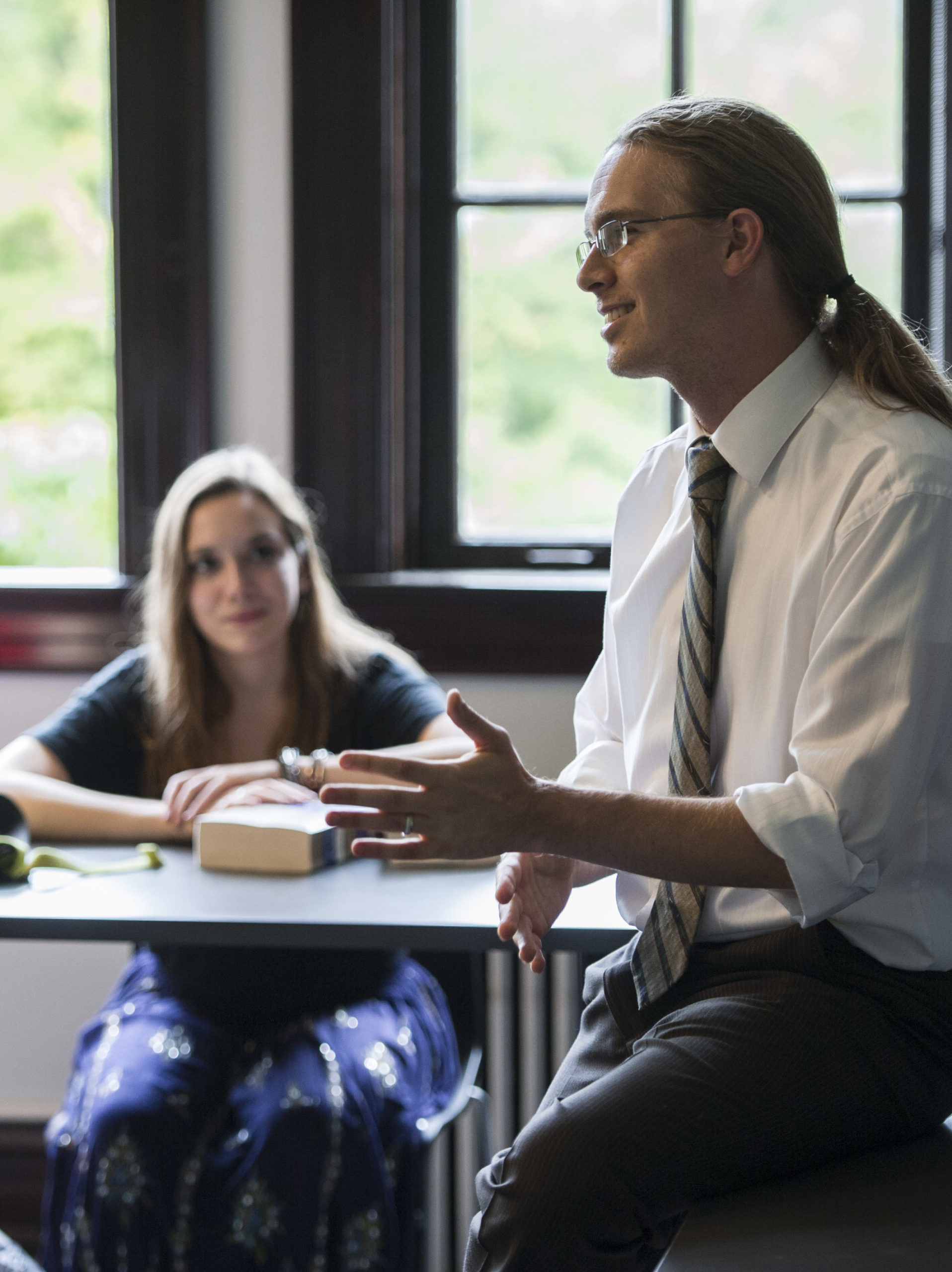
By Dan Oetting
